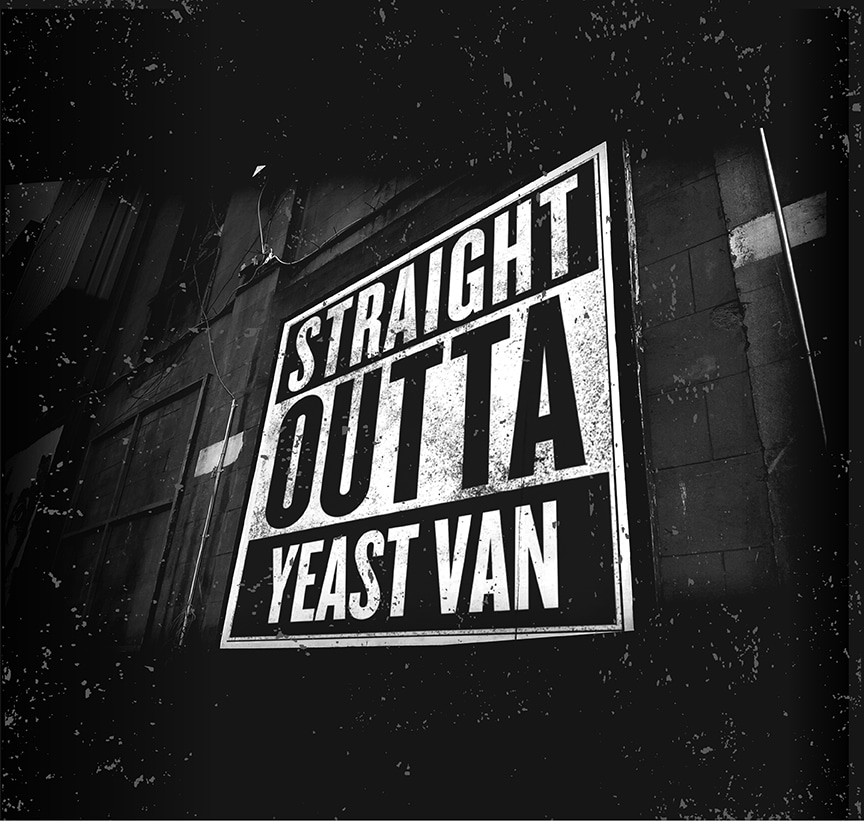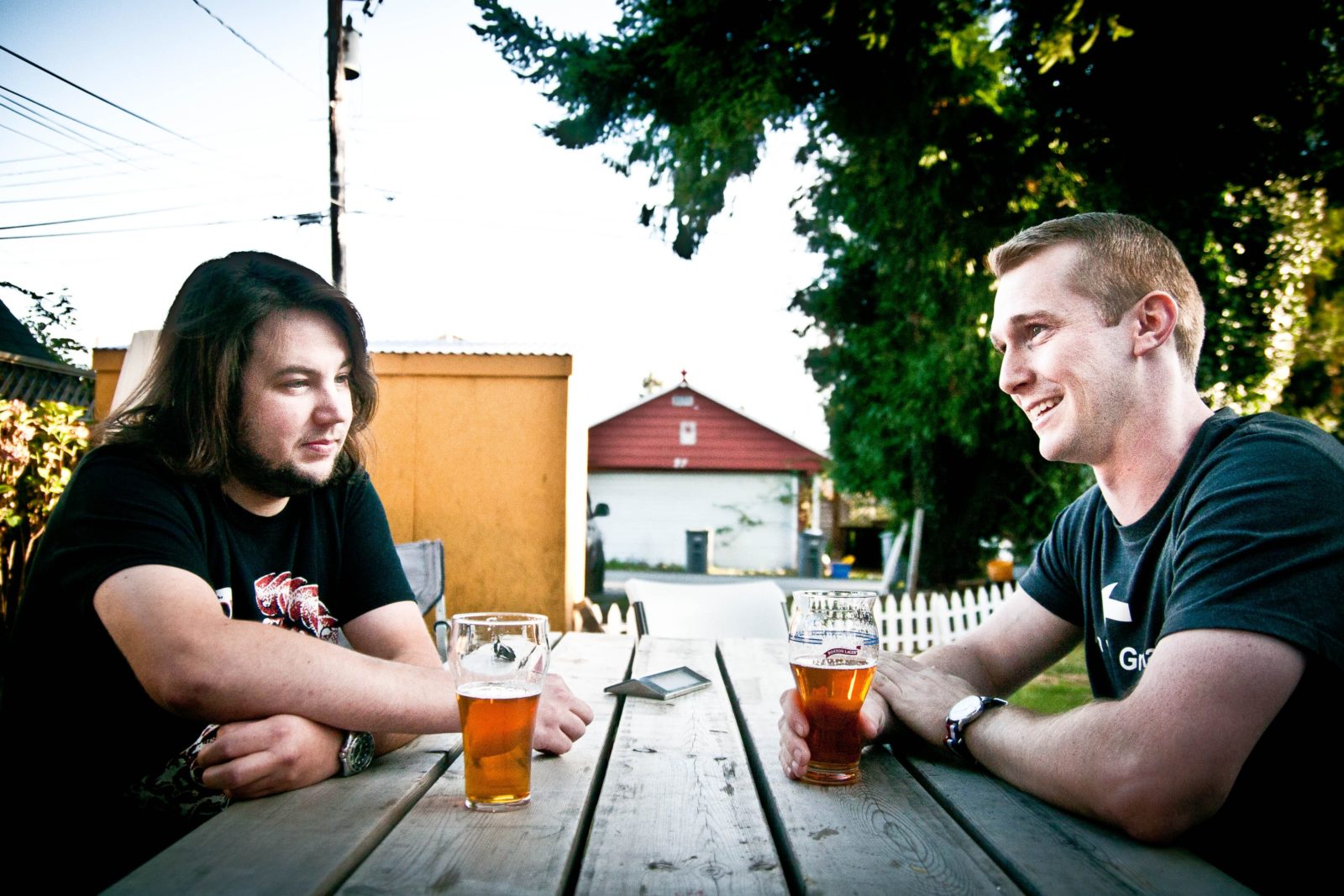
Crannog Ales given exemption to rules requiring farm breweries to grow 50% of grain on site, but Persephone not so lucky
The provincial election is just a week away and brewers across the province are hoping that once the dust settles, they’ll see a change to regulations that currently make it really, really difficult to operate a brewery on a farm.
Under a new policy passed by the provincial government in 2016, breweries operating on farms located on the Agricultural Land Reserve (ALR) are required to grow 50% of the “food product” used to make their beer onsite. That means at least half of all the barley (or wheat, oats, etc.) needed to make their beer has to come from the farm where the brewery is located. Hops, for some reason, are explicitly excluded from that calculation.
What’s especially frustrating for brewers is that wineries and cideries are allowed to meet the “food product” requirement by buying from other B.C. farms, but breweries, meaderies and distilleries are not. So a farm-based winery doesn’t have to grow a single grape, so long as it buys at least 50% the grapes it uses from B.C. farms, but farm-based breweries need to grow at least half their grain onsite, even though they generally require much more farmland than wineries and cideries to grow their fermentables.
As a result, for a brewery to operate on ALR land (which covers pretty much all farmland in B.C.), it would likely need hundreds and hundreds of acres to grow the grain necessary for even a modest operation.
“If you have one bad crop, you’re out of business,” says Brian Smith, CEO and co-owner of Persephone Brewing Company in Gibsons. The award-winning brewery is located on an 11-acre hop farm on the Sunshine Coast, all of which goes into the beer made onsite. But thanks to the recent policy change, Persephone no longer allowed to operate on ALR land. If the province doesn’t amend the policy, they’ll have to cease operations or move by December 2018.
“It’s a total double standard,” says Rebecca Kneen, co-owner of Crannog Ales in Sorrento. Crannog, which operates on a modest hop farm, was given an exemption to the new policy by the Agricultural Land Commission (ALC) last month because it had previously received approval to operate back in 1999 before the policy was instituted.
“We’re OK right now, but the approval is conditional and tenuous,” says Kneen.
One farm that’s considering a brewery under the new rules is the 1,500-acre Fraserland Organic Farms in Delta, which grows about 300 acres of malting barley at any given time as part of its crop rotation (it’s primarily a potato farm).
However, the vast majority of farms in Southern B.C. are under 70 acres, so that presents some problems.
“You just don’t find a lot of farms like that in B.C., outside of the Peace River region,” says Smith. “I think [this policy] is a bit lazy, it’s fundamentally flawed. [The Ministry of Agriculture] missed a big part of this.”
No one from the B.C. Ministry of Agriculture would comment on the policy, or explain why wineries and cideries get a different set of rules. (The spokesperson I talked to said the ministry wouldn’t be commenting until after the election.)
The ministry’s website states that, “The 50% farm products threshold reflects an extensive consultation, and provides the balance of offering farmers a value-added opportunity on their farm, while ensuring that farming remains an integral part of the overall operation.”
However, both Persephone and Crannog, the only two existing breweries the policy affects, say they were never consulted in any way.
“I’ve talked to hop farmers all over the province, and they weren’t consulted either,” says Smith. “There’s probably three or four that I know of that were waiting to start a brewery that were blindsided by this.”
While Crannog has received an exemption allowing it to operate, Kneen is continuing to fight for the ALR policy to be changed. For one thing, if the purpose of the policy to protect arable farmland from being converted to industrial uses, it should probably include land use restrictions, which it currently doesn’t.
“It really betrays a lack of comprehension about how breweries operate,” she says.
Even the explanation of the policy on the Ministry of Agriculture’s website seems to contradict the policy itself.
“The 50% threshold is measured by the quantity (volume or weight) of all the ingredients or total farm products used in the brewing and distilling process (e.g., grain, honey, hops, spices and botanicals) and is calculated on an annual basis,” the ministry website states.
However, the policy itself actually specifically excludes hops in the calculation, stating, “For beer, the farm product will be grain and not hops due to the (small) quantities of hops involved in the beer making process.”
Both Kneen and Smith have received support from their local NDP and Green candidates and are hopeful that no matter which party is elected on May 9, the policy will get reviewed and changed.
Smith has organized several Save The Beer Farm events leading up to the provincial election to help gain traction for the cause. Persephone currently has a petition with close to 4,000 signatories on Change.org, asking current Minister of Agriculture Norm Letnick to amend the policy, allowing breweries to purchase from other B.C. farms to meet the 50% threshold and to include land-use restrictions to prevent macro breweries from moving onto ALR land and ripping up farmland to build massive facilities just for the tax breaks.
“We’re cautiously optimistic,” says Smith. “This policy is holding back economic development. It needs to be changed.”




